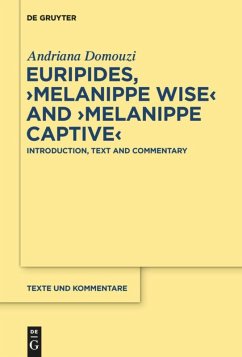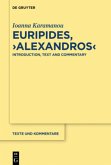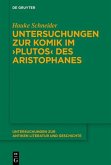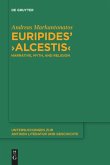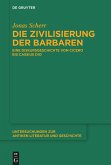The myth of Melanippe, popular in antiquity thanks to two dramatisations by Euripides, Melanippe Wise and Melanippe Captive, would have sunk into oblivion if it wasn't for quotations in other authors and papyri fragments, as both plays were excluded from the Hellenistic Selection. Melanippe Wise, a most controversial Euripidean tragedy, is a proto-feminist paean to women's rights and intellectual equality, addressing religious scepticism, science and humanism. Melanippe Captive's setting and mythological roots in the Metapontine area of Southern Italy reveals tragedy's engagement with contemporary interregional colonisation politics and its dissemination outside Athens. This full-scale edition - the first since Van Looy's 1964 commentary in Flemish - offers a revised Greek text alongside a critical apparatus and scholarly translation of both testimonies and fragments. The introduction explores Euripides' manipulation of Thessalian myth, dating, plot-structure and reconstructions, major themes and reception, ancient and contemporary. The commentary is the first to cover testimonies and fragments with equal attention while the translation facilitates accessibility to all readers interested in these unjustly lost Greek tragedies.
